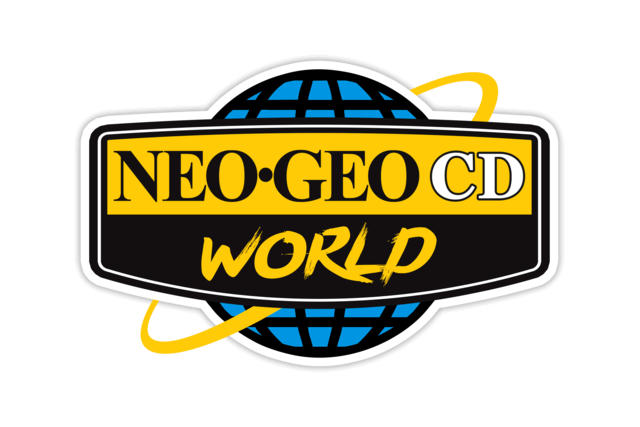Hi everybody ....
Yesterday, I discover a new Ym2608 (OPNA) tracker ->
BambooTracker ( for the moment , It is a tracker for YM2608 (OPNA) which was used in NEC PC-8801/9801 series computers. exported VGM and S98 )
few videos are available on the Net yet ... :
BambooTracker Test Tune
+
YM2608 Test Tune: [BambooTracker] | Oscilloscope
Description :
If you're wondering what BambooTracker is, it's a new tracker music program by rerrahkr that lets you make music for the Yamaha YM2608, the soundchip of the NEC PC-8801/9801 computer. While the custom ADPCM channel is missing here, at least anyone who isn't a fan of MML (for freem

) can make YM2608 music. I do hope to see this tracker being developed further. Also, it isn't shown here, but I am using the hi-hat from the Rhythm Sound Source portion of the YM2608.
Here's the GitHub link to this program:
rerrahkr/BambooTrackerGitHubYM2608 music tracker 🎍🎋. Contribute to rerrahkr/BambooTracker development by creating an account on GitHub. other URL around the subject :
https://famitracker.org/wp/?tag=bambootracker BambooTracker – a new OPNA tracker with great usability and even greater potential
http://battleofthebits.org/academy/GroupThread/19492/OPNA+tracker+(BambooTracker)/https://vgmrips.net/wiki/S98_File_Format Now , how to contact the Dev , rerrahkr ???? found in his BLOG :
http://www.crescendi.at-ninja.jp/about.htmlA++ fred /FRONT
PS :
https://github.com/rerrahkr/BambooTracker/releases BambooTracker-v0.1.3-winXP.zip 26.8 MB + BambooTracker-v0.1.3.zip 12.1 MB
UPTDATE : BambooTracker and ADPCM support -> new issue and good stuf from CTR / or superctr from VGMRips -> an ADPCM Library ( ADPCM codec here for :
https://github.com/superctr/adpcm/blob/master/ymb_codec.c Encode and decode algorithms for Y8950/YM2608/YM2610 ADPCM-B - 2019 by superctr.
https://github.com/rerrahkr/BambooTracker/issues/6 some good discussions here , around ADPCM support !!!!
https://awesomeopensource.com/project/rerrahkr/BambooTracker cool stuff Now
Instrument (FM instruments)
The tracker can load instrument from the following files.
.bti (BambooTracker instrument file)
.dmp (DefleMask preset file)
.tfi (TFM Music Maker instrument file)
.vgi (VGM Music Maker instrument file)
.opni (WOPN instrument file)
.y12 (Gens KMod dump file)
.ins (MVSTracker instrument file)It also supports loading plain text of FM envelope.
ADPCM waveform editor supports .wav import (16-bit mono 2k-55.5kHz). <<<< cool , ADPCM deltaT or N supported now ! ; Ym2608 is not just limited to 2k-
16kHz 
A instrument saves as .bti file.
BankThe tracker can load bank from the following files.
.btb (BambooTracker bank file)
.wopn (WOPN bank file)
.ff (PMD FF file)
.ppc (PMD PPC file) <<<< adpcm file
.pvi (FMP PVI file) <<<< adpcm file
A bank saves as .btb file.
ExportThe tracker can export a song to the following files.
.wav (WAVE file)
.vgm (VGM file) <<< cool !
.s98 (S98 file)
https://user-images.githubusercontent.com/26477882/77825642-eb296300-714d-11ea-95c0-863bce2affc9.png (sample with Sampling rate 16K ->
Delta-N: 18893.26126126126 (round to whole number) /
0X49CD in Hexa
-> note : for the control > i used this good convert by freem:
http://www.ajworld.net/neogeodev/ym2610am2.html #
Sampling Rate to Delta-N Converter>
rerrahkr commented on 28 MarAfter the implementation of ADPCM instrument, I will work on ADPCM drum kit.
I plan ADPCM drum kit editor:
-It has key assign list and waveform editor.
-There are no envelope, arpeggio and pitch editor, specializing in only playing samples.
-
Key assign list controls sample (waveform number) to play at note-on and its pitch (by seminote).
-Each sample can be edited waveform editor in the same way as that of ADPCM instrument editor.
-Waveform properties are shared with ADPCM instruments.
Note: additional tools for BT - > helps well to import instruments from .opm files
https://github.com/nobuyukinyuu/bambooCopy take your VOPM library and make it easy to preview and copy FM envelopes for import into BambooTracker.
ADDON:
https://raw.githubusercontent.com/ValleyBell/MidiConverters/master/pmd_SeqFormat.txthttps://github.com/OPNA2608/libopenpmd/blob/master/docs/ some specification for PMD + PPC + PVI -> the sample address of the YM2608 is specified in steps of 32 bytes.
https://github.com/rerrahkr/BambooTracker/issues/335 YM2610B VGM export
One more different thing - YM2610B supports 16 MB for the ADPCM-B channel, because of this, the sample address of the YM2610B is specified in steps of 256 bytes. As you know, YM2608 is specified in 32 bytes. That's All.


 ) can make YM2608 music. I do hope to see this tracker being developed further. Also, it isn't shown here, but I am using the hi-hat from the Rhythm Sound Source portion of the YM2608.
) can make YM2608 music. I do hope to see this tracker being developed further. Also, it isn't shown here, but I am using the hi-hat from the Rhythm Sound Source portion of the YM2608.